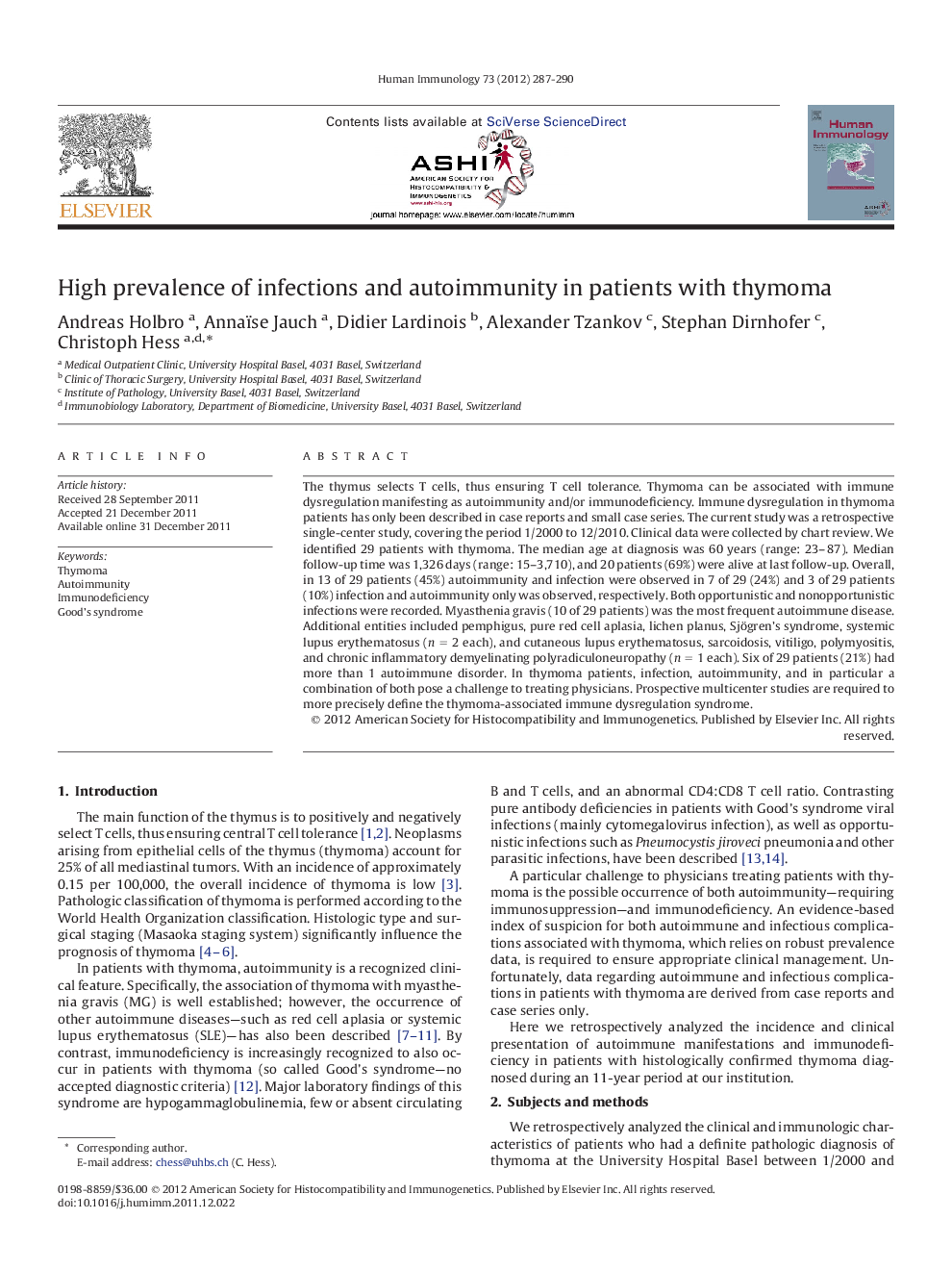| Article ID | Journal | Published Year | Pages | File Type |
|---|---|---|---|---|
| 3351729 | Human Immunology | 2012 | 4 Pages |
The thymus selects T cells, thus ensuring T cell tolerance. Thymoma can be associated with immune dysregulation manifesting as autoimmunity and/or immunodeficiency. Immune dysregulation in thymoma patients has only been described in case reports and small case series. The current study was a retrospective single-center study, covering the period 1/2000 to 12/2010. Clinical data were collected by chart review. We identified 29 patients with thymoma. The median age at diagnosis was 60 years (range: 23–87). Median follow-up time was 1,326 days (range: 15–3,710), and 20 patients (69%) were alive at last follow-up. Overall, in 13 of 29 patients (45%) autoimmunity and infection were observed in 7 of 29 (24%) and 3 of 29 patients (10%) infection and autoimmunity only was observed, respectively. Both opportunistic and nonopportunistic infections were recorded. Myasthenia gravis (10 of 29 patients) was the most frequent autoimmune disease. Additional entities included pemphigus, pure red cell aplasia, lichen planus, Sjögren's syndrome, systemic lupus erythematosus (n = 2 each), and cutaneous lupus erythematosus, sarcoidosis, vitiligo, polymyositis, and chronic inflammatory demyelinating polyradiculoneuropathy (n = 1 each). Six of 29 patients (21%) had more than 1 autoimmune disorder. In thymoma patients, infection, autoimmunity, and in particular a combination of both pose a challenge to treating physicians. Prospective multicenter studies are required to more precisely define the thymoma-associated immune dysregulation syndrome.
